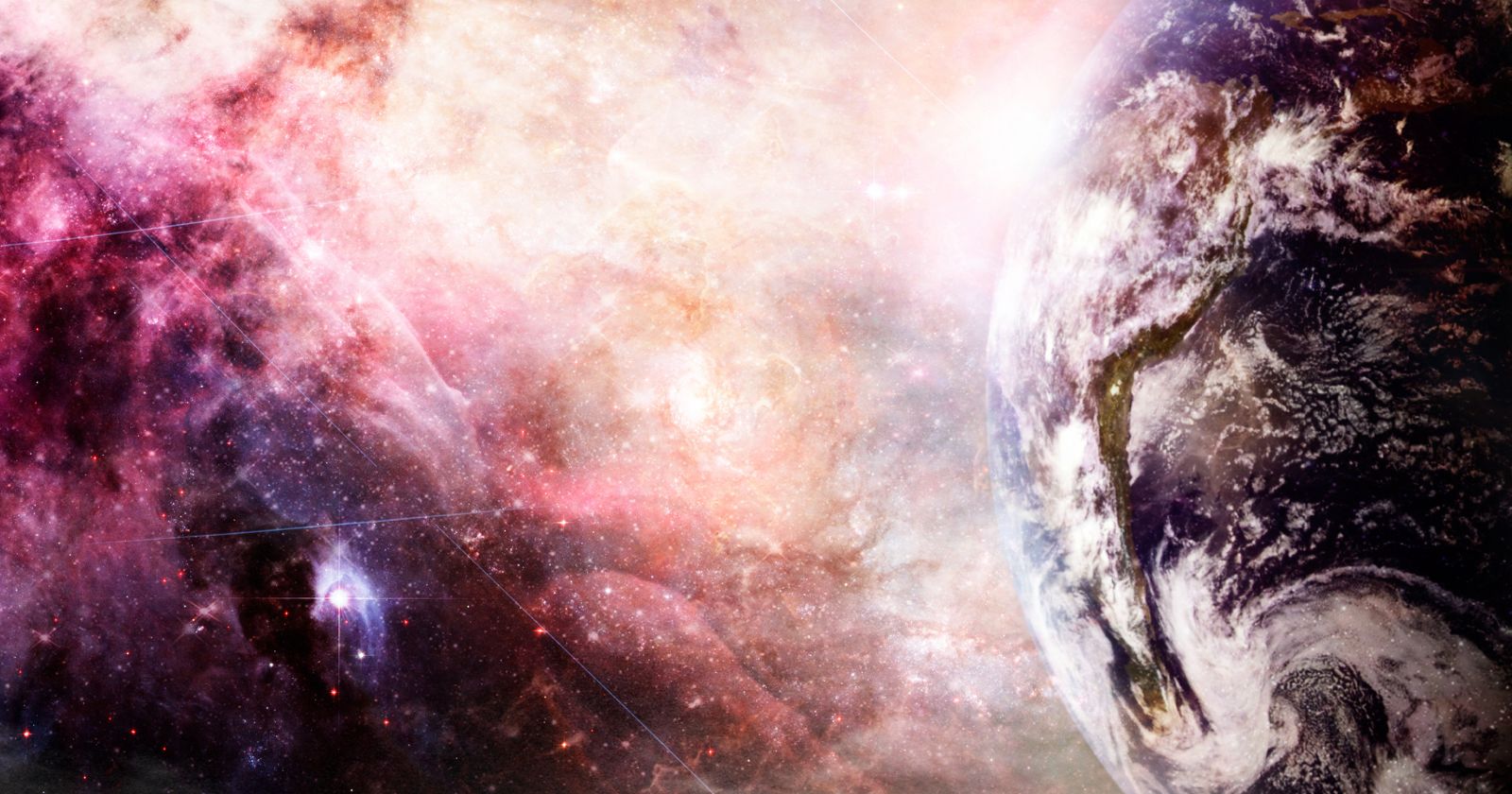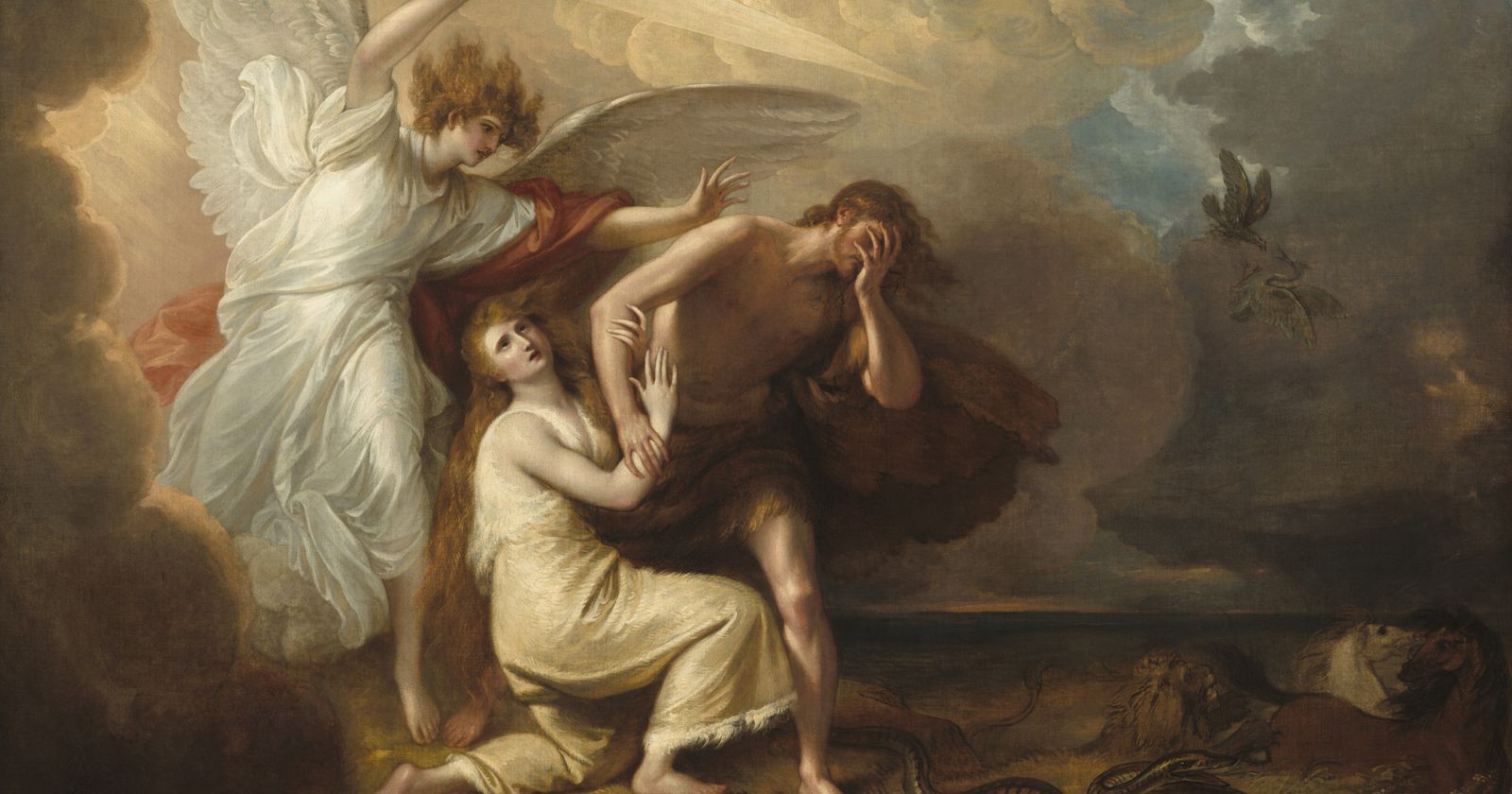The Fall of Man, Middle-Earth Style?

Sometimes, to paraphrase C.S. Lewis, stories say what needs to be said best. This truth impressed itself on me this summer through a curious coincidence.
In preparation for the upcoming winter semester here at Briercrest, I had been slowly working my way through J.R.R. Tolkien’s legendarium, The Silmarillion (1977), a collection of mythical tales beginning with the creation of the world, and gradually passing “from the high and the beautiful to darkness and ruin” (chapter 24). It is generally fast-paced, highly dramatic, and strikingly ‘cinematic,’ with its battles between larger-than-life heroes and their diabolical, monstrous enemies (from Balrogs to werewolves and dragons, not to mention the odd vampire). It provides a crucial background for The Lord of the Rings.
At the same time, I was methodically winding my way through John Milton’s masterpiece, Paradise Lost (1667), a twelve-book epic poem that charts Satan’s fall from heaven, God’s subsequent creation of the earth, and Adam and Eve’s temptation and expulsion from Eden. It is also tragic in tone, passing from “the high and beautiful to darkness and ruin,” albeit with a glimmer of hope in the prophecy of Christ’s Incarnation.
On this particular occasion, I was hoping to better understand Milton’s depiction of human passions for an article I was writing.
As I studied Milton in the morning before turning to Tolkien in the afternoon, I was reminded that both Paradise Lost and The Silmarillion are fundamentally origin stories. (We love these, don’t we? Just think of the many Star Wars spin-offs!) More specifically, they are both, to varying degrees, imaginative retellings of the Biblical creation story.
(This fact was certainly lost on the creators of Amazon’s The Rings of Power series, a kind of secularized spin-off of the final chapters of The Silmarillion).
To be clear, I don’t mean to paint The Silmarillion as an allegory of Genesis. It’s not. That said, both Tolkien’s and Milton’s narratives reflect the Biblical creation account in important ways. In both, a very good God demonstrates or exemplifies his goodness by creating a very good world. But tragedy is just around the corner, as diabolical spiritual forces, combined with human rebellion and sin, intrude to mar what was otherwise “very good.”
Biblical Echoes in Literature
Now, there are all sorts of reasons why many works of literature (especially what we might now call “classic” or “canonical” works of English literature) return to such Christian subjects. Take, for example, this claim from the eighteenth-century English literary critic, John Dennis (1704): “the Religion Reveal’d in the Old and New Testament is proper, nay Necessary to give the last force and Elevation to Poetry” (Grounds of Criticism in Poetry).
Interesting, isn’t it?
We don’t have to accept Dennis’s explanation. Still, we do have to accept the curious historical fact that much English literature, especially prior to the twentieth century, returns to the Scriptures for inspiration. It’s as though many English writers were compelled to respond to the words of the hymn, “tell me the old, old story.”
But to return to my accidental reading of Tolkien and Milton in tandem. As I slowly moved through both works, pencil in hand, I was particularly struck by how graphically and powerfully both writers expressed the debilitating effects of human sin.
This, of course, is a theological axiom (or truism). Recounting the effects of Adam and Eve’s rebellion in Eden, the second-century theologian Irenaeus of Lyons succinctly states that God “put the man far from His face, making him then dwell by the road into the Paradise, since the Paradise does not receive sinners” (On the Apostolic Preaching).
Irenaeus repeats here what the entire Great Tradition of Christianity accepts: that sin fundamentally changed the human condition.
Tolkien and Milton agree. Despite being ‘worlds apart’ theologically—one, a seventeenth-century Puritan; the other, a twentieth-century Catholic—both pull out all the stops to graphically express the world-altering effects of sin.
Thus, in Book 10 of Paradise Lost, Milton suggests that the fall of Adam and Eve led God to alter the physical structure of the earth radically—and not for the better!
…the Creator calling forth by name
His mighty angels gave them several charge,
As sorted best with present things. The sun
Had first his precept so to move, so shine,
As might affect the earth with cold and heat
Scarce tolerable, and from the north to call
Decrepit winter, from the south to bring
Solstitial summer’s heat. … (Book 10, Lines 649-656)
Essentially, Milton’s God causes living conditions on earth to deteriorate. The angels don’t stop there but go on to alter planetary motions—creating “synod unbenign” and “influence malignant” (661-662)—and even tip the earth on its axis:
Some say he bid his angels turn askance
The poles of earth twice ten degrees and more
From the sun’s axle; they with labor pushed
Oblique the centric globe … (668-671)
We presumably don’t share Milton’s cosmology, but, as Christians, we can surely get behind his theology (at least, in this case): in brief, sin has far-reaching, debilitating effects. And to Milton, it affects all of us to this day. The next time you have the ‘flu, for example—short for influenza[“influence”]—imagine Milton directing your attention to the planetary “influence malignant.”
Again, we do not have to accept this literal interpretation of events to see what Milton is driving at. Sin has caused incalculable damage to our world. We cannot go back with a simple snap of our fingers, nor can we “will” a better creation into being.
Remarkably, Tolkien does something very similar in The Silmarillion. Recall that both works are origin stories and creation myths.

Tolkien’s Melkor: The Corrupter of Harmony
In The Silmarillion, Eru (also known as Ilúvatar) and his angelic powers (the Ainur or Valar) create the world from music:
In the beginning, Eru, the One, who in the Elvish tongue is named Ilúvatar, made the Ainur of his thought, and they made a great Music before him. In this Music the World was begun; for Ilúvatar made visible the song of the Ainur, and they beheld it as a light in the darkness. And many among them became enamoured of its beauty, and of its history which they saw beginning and unfolding as in a vision. Therefore Ilúvatargave to their vision Being, and set it amid the Void, and the Secret Fire was sent to burn at the heart of the World; and it was called Eä. (Silmarillion, “Valaquenta”)
This is a beautiful image of creation, isn’t it? A literal “harmony of the spheres”! Tragically, evil intrudes to disrupt this harmony in the form of Melkor (or Morgoth), Tolkien’s Satanic accuser who “fell through arrogance to contempt for all things save himself” (“Valaquenta”). Melkor sows discord among angelic powers, elves, and men, corrupting the world in the process.
On one level, Melkor/Morgoth is simply a liar who encourages falsehood: “he that seeth through Morgoth’s eyes, willing or unwilling, seeth all things crooked” (Silmarillion, Chapter 22).
But the evil he introduces into the world has far-reaching consequences. It “packs a punch,” as we say. While the effects of this creeping, infecting evil take time to materialize, they are just as remarkable and visible as in Milton.
Thus, when the men of the island kingdom of Númenor are gullibly tempted by Morgoth’s servant, Sauron, to invade the West—chaffing against their fated mortality—their prideful actions not only lead to the deluge of their city (Tolkien’s version of the Atlantis myth) but the actual warping or rounding of the world. Let me say that again: the world was created flat in The Silmarillion until evil bent it.
Tolkien writes that in one fateful day, “Ilúvatar showed forth his power, and he changed the fashion of the world” (Silmarillion, “Akallabêth: The Downfall of Númenor”).
Essentially, what was once a “flat earth” curled itself up into a ball in The Silmarillion, all because of sin:
Thus in after days, what by the voyages of ships, what by lore and star-craft, the kings of Men knew that the world was indeed made round… (“Akallabêth”)
This is particularly troubling in Tolkien’s legendarium, not because of resulting environmental changes but because access into the West (the heavenly realm) is thereby rendered difficult. There is still a secret “Straight Road,” but only a select few can find it:
…the Eldar [the Elves] were permitted still to depart and to come to the Ancient West and to Avallónë, if they would. Therefore, the lore masters of Men said that a Straight Road must still be, for those that were permitted to find it. And they taught that, while the new world fell away, the old road and the path of the memory of the West still went on, as it were a mighty bridge invisible that passed through the air of breath and of flight (which were bent now as the world was bent), and traversed Ilmen [the region of the stars] which flesh unaided cannot endure, until it came to Tol Eressëa, the Lonely Isle, and maybe even beyond, to Valinor, where the Valar still dwell and watch the unfolding of the story of the world.
While we can quibble about creative license (“Did God really create elves?”), superciliously flag the mythical or færie elements of the story, and firmly object to “flat earth” theories, this would surely miss Tolkien’s point.

What Can We Learn About Sin Through Great Literature?
Ultimately, sin, both in Paradise Lost and The Silmarillion, has comic effects. It fundamentally rewrites the structure of the world, thus creating a need for the “new heaven and new earth” promised in Revelation 21. The story or narrative, in each case, drives home the theology.
Admittedly, the idea of sin has become increasingly unpopular in certain Christian circles. There is significant resistance to being called “miserable offenders,” as C.S. Lewis stresses in an essay of the same name (“‘Miserable Offenders’: An Interpretation of Prayer Book Language”). That said, the devastating, world-shattering effects of sin remain central to any orthodox understanding of Christianity. We can’t understand the Incarnation if we don’t understand the fall.
As I see it, Milton and Tolkien can help us recover this understanding.
I may be biased, but perhaps Christians should read more “great works” of English literature.
To find out how you can take interesting classes with Dr. Pahl, go here: Bachelor of Arts English degree
